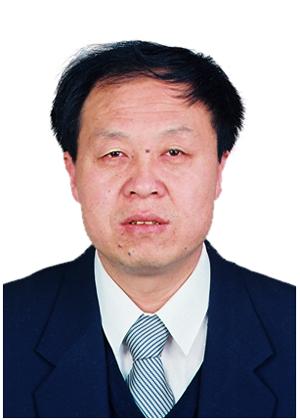Hou Shuisheng
Source: Author: Date:2014-11-29

Professor Shuisheng Hou
Institute of Animal Sciencs (IAS)
Chinese Academy of Agricultural Sciences (CAAS)
Address: No 2, Yuanmingyuan West Rd., Beijing, 100193, P.R. China
Phone: +86-10-62815832
Fax: +86-10-62815832
E-mail: houss@263.net
Website: http://www.iascaas.net.cn
Education Background
Prof. Hou Shuisheng received his BS degree in animal science in from Northwest Agriculture & Forestry University in 1983 and then received his MS and PhD degree in animal nutrition and feed science from Graduate School of Chinese Academy of Agricultural Sciences in 1991 and 1999, respectively.
Research Area
The research of Prof. Hou is mainly contributed to nutrition and genetic selection for Pekin ducks. As a duck nutritionist, Prof. Hou is the editor in-chief of Chinese duck feeding standards “ nutrient requirements of meat-type ducks” (NY/T 2122-2012) governed by Ministry of Agriculture of China. In the past decades, he and his group develop the methodology of feedstuff evaluation for ducks by tube-fed assay and obtained the requirements of many amino acids, vitamins, and mineral for White Pekin ducks by dose-response trials. As a duck geneticist, Prof Hou conducted the genetical selection of Chinese Pekin ducks and the new duck specialized strain “Z-type Pekin duck” with high lean meat yield and feed efficiency was bred successfully by him and his group. Recently, Prof. Hou and his team obtained Beijing Municipal Science and Technology Progress 1st Award in 2010 for their research achievement “Innovation and Application of Genetic Resource for Pekin Ducks” and then they obtained National Science and Technology Progress 2nd Award for their research achievement “Breeding of New Strains and Research & Application of Feeding Techniques in Pekin Ducks ” in 2013. All his research is directed to commercial duck production in China. His research is directed to efficient duck production in China.
Selected Publications
Zheng, A., W. Chang, S. Hou, S. Zhang, H. Cai, G. Chen, R. Lou, G. Liu. Unraveling molecular mechanistic differences in liver metabolism between lean and fat lines of Pekin duck (Anas platyrhynchos domestica): A proteomic study. Journal of Proteomics. 2014,98: 271-288.
Xie, M X.F. Han , W. Huanga, S.S. Hou Effects of niacin status on tryptophan requirements of starter white Pekin ducks. Livestock Science, 2014,159: 75-78.
Xu, T. S., Gu, L. H., X. H., B. G.Ye, X. L.Liu,Hou, S. S. Characterization of myostatin gene ( MSTN) of Pekin duck and the association of its polymorphism with breast muscle traits. Genetics and Molecular Research. 2013,12: 3166-3177.
Tang, J., M. Xie, J. Yang, Z. G. Wen, Y. W. Zhu, W. Huang, and S. S. Hou. Riboflavin requirements of white Pekin ducks from hatch to 21 d of age. British Poultry Science, 2013, 54: 407-411.
Wang, C., M. Xie, W. Huang, J. J. Xie, J. Tang, and S.S. Hou. Arginine requirements of White Pekin ducks from 1 to 21 days of age. Poultry Science, 2013, 92: 1007-1010.
Zheng, A., G. Liu, Y. Zhang, S. Hou, W. Chang, S. Zhang, H. Cai, G. Chen. Proteomic analysis of liver development of lean Pekin duck. Journal of Proteomics. 2012,75(17): 5396-5413.
Xu,T., Huang, W. X. Zhang, B. Ye, H. Zhou, S. Hou. Identification and characterization of genes related to the development of breast muscles in Pekin duck. Molecular Biology Reports. 2012,(39): 7647–7655.
Zhu, Y.W., M. Xie, W. Huang, L. Yang, and S. S. Hou., Effects of Biotin on Growth Performance and Foot Pad Dermatitis of Starter White Pekin Ducklings. British Poultry Science, 2012, 53: 646-650.
Xie, M., J.N. Zhao, S. S. Hou, and W. Huang. Apparent metabolizable energy requirement of white pekin ducklings from hatch to 3 weeks of age. Animal Feed Science and Technology. 2010, 157: 95-98.
Zhao, N., S.S.Hou, X.L. Liu, X.G.Yang, and W.Huang. Six single nucleotide polymorphisms in adipocyte fatty acid-binding protein (A-FABP) gene in Beijing ducks. Czech Journal of Animal Science. 2010, 55 (9): 398-400.
Wang, J., S. S. Hou, , Huang, W., Yang, X. G., Zhu, X. Y.,and Liu, X. L. Molecular cloning of prolactin receptor of the Peking duck. Poultry Science, 2009,88: 1016-1022.
Xie, M., S.X. Wang, S.S. Hou, and W. Huanga, Interaction between dietary calcium and non-phytate phosphorus on growth performance and bone ash in early White Pekin ducklings. Animal Feed Science and Technology. 2009, 151: 161-166.
Fan, H. P., M. Xie, W. W. Wu, S. S. Hou, and W. Huang. Effects of dietary energy on growth performance and carcass quality of white growing pekin ducks from two to six weeks of age. Poultry Science, 2008. 87:1162-1164.
Xie, M., S. S. Hou, W. Huang, and H. P. Fan. Effect of excess methionine and methionine hydroxy analogue on growth performance and plasma homocysteine of growing Pekin ducks. Poultry Science, 2007. 86:1995-1999.
Zhang, C.L. S.S. Hou, Y.H. Wang, F.Z. Liu, M. Xie. Feed input and excreta collection time in metabolisable energy assays for ducks. Czech Journal of Animal Science, 2007. 52 (12): 463–468.
Xie, M., S.S.Hou, W. Huang. Methionine Requirement of male white Peking Ducks from Twenty-One to Forty-Nine Days of Age. Poultry Science, 2006. 85: 743-746.
Xie, M., S.S. Hou, W. Huang, L. Zhao, J.Y. Yu, W.Y. Li and Y.Y. Wu. Interrelationship between methionine and cystine of early Peking ducklings. Poultry Science, 2004. 83: 1703-1708.